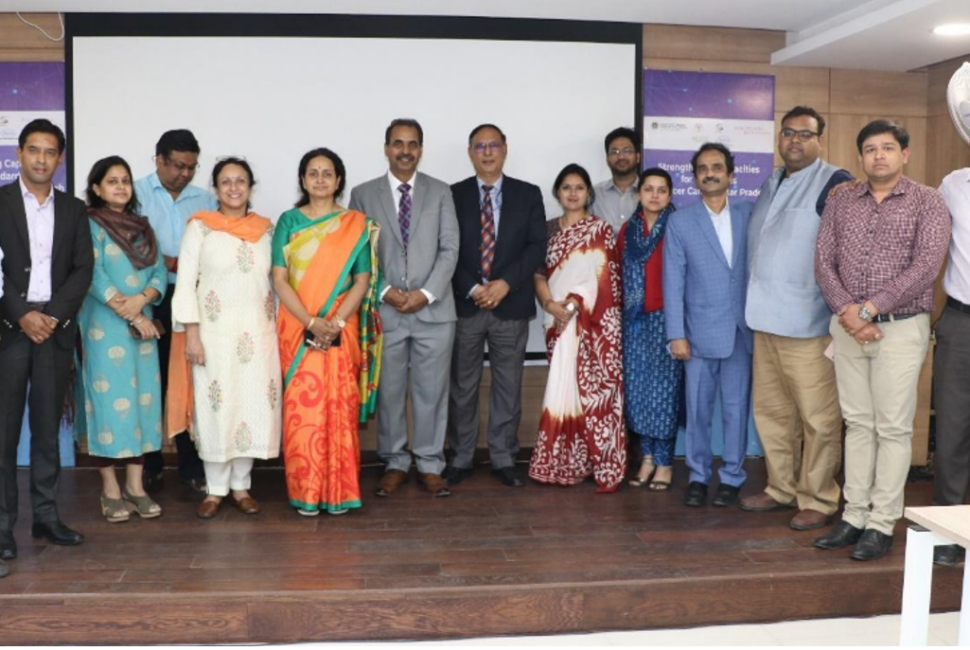Technical Workshop Paves the Way for Strengthening Cancer Care in Uttar Pradesh

With nearly 160,000 new cases diagnosed every year, Uttar Pradesh is home to over 600,000 cancer patients. Late-stage presentation of the disease, specialty gap in healthcare provisioning, and poor prognosis in cancer patients are some of the challenges that dictate the scenario in the State. To strengthen capacities for standards of cancer care in Uttar Pradesh, Access Health International, in collaboration with the State Agency for Comprehensive Health (SACHIS), King George’s Medical University (KGMU), and Roche India Healthcare Institute (RIHI) organized a technical discussion on March 3, 2023, in Lucknow.
The dialogue featured members of a Special Interest Group (SIG) comprising of leading oncologists, policymakers, technocrats, NGOs, and private-sector partners. They were focused on identifying solutions that can be presented to state and national leadership based on the findings of the various cancer care initiatives operating in Uttar Pradesh. The discussions delved into the overall landscape of cancer care providers in the state while also focusing on the need to enhance the Health Benefits Package (circa 2022) under the Pradhan Mantri Jan Arogya Yojana (PM-JAY), which provides insurance cover to underprivileged beneficiaries.
Some of the key areas of consideration that emerged during the discussions on the cancer care ecosystem in the state included: equipping District NCD Clinics with a basic cancer prevention unit, the need for opportunistic screening camps, training ASHAs on early signs & symptoms of cancer, collaborating with the Department of Education to organize cancer awareness programs, and decentralizing cancer care by building capacity in district hospitals and linking them to public medical colleges.
In the purview of PM-JAY, recommendations pertaining to newer and cost-effective cancer drugs were made by the participants. They also stressed the dire need for an independent first line of diagnostics package offered as an OPD procedure, the role of tumor board for better patient care, developing standard diagnostic pathways to prevent misuse and creating mechanisms for additional funding for cancer care.
This technical discussion was prefaced by a series of capacity-building workshops for oncologists and allied medical practitioners on standard treatment—in order to strengthen early screening and diagnosis, boost the availability of and access to cancer treatment, and increase financing for cancer care for better patient outcomes.

